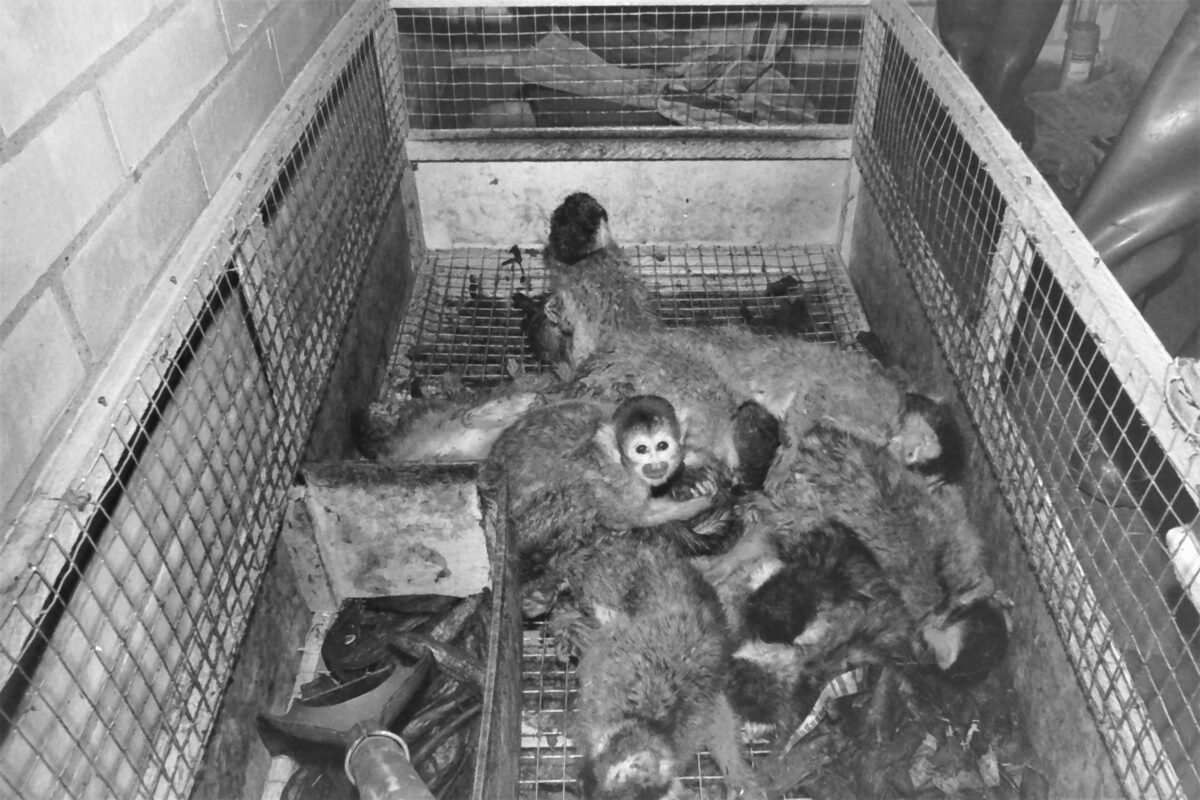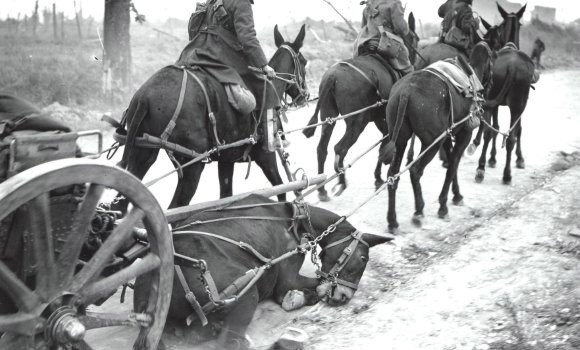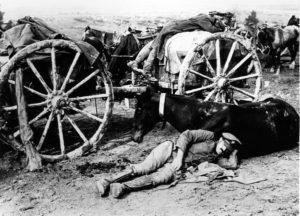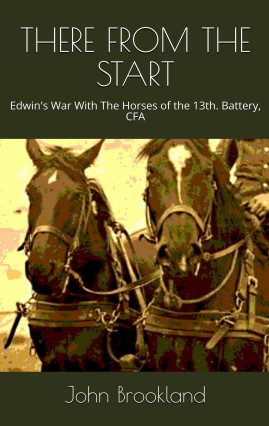Hundreds of thousands of research monkeys and baboons passed through Heathrow Airport between the Second World War and the 1980’s for the pet trade and biomedical research. The airline route was colloquially known as the London airport monkey run by the airlines. There were so many fatalities involved that at one point the media dubbed it the massacre of the monkeys.
The shipments were mostly from India and Africa but also South East Asia and South America. Most were heading for North America and Europe although many were imported into the U.K. In the fifties and sixties there were also specially chartered flights arriving at airports across the country full of monkey shipments. Some of them managed to escape causing media headlines.
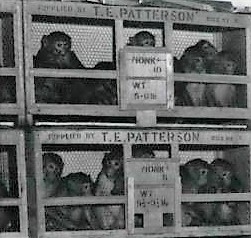
The London airport monkey run caused horrific suffering and deaths .
On New Year’s day 1955, 457 Rhesus monkeys were left in an unventilated British Overseas Airways Corporation (B.O.A.C) van for three hours on the tarmac at London (Heathrow) Airport awaiting loading. When the back door was opened 394 had suffocated to death. Some cynics suggested that the monkeys met a better death by suffocation than they would have done had they reached their destination. Another 1,000 sitting in two ventilated vans survived.
Although a deplorable incident, it was unfortunately a regular occurrence over the decades. Tens of thousands suffered and died from dehydration, pneumonia, starvation, asphyxiation, disease and shock. This was caused by unsuitable crating, overcrowding, extreme temperature and air pressure changes, shock and a total lack of understanding of their needs.
Thousands also suffered or died before reaching the aircraft during capture and holding and journeys to the departure airport. And of course few survived the research done on them.
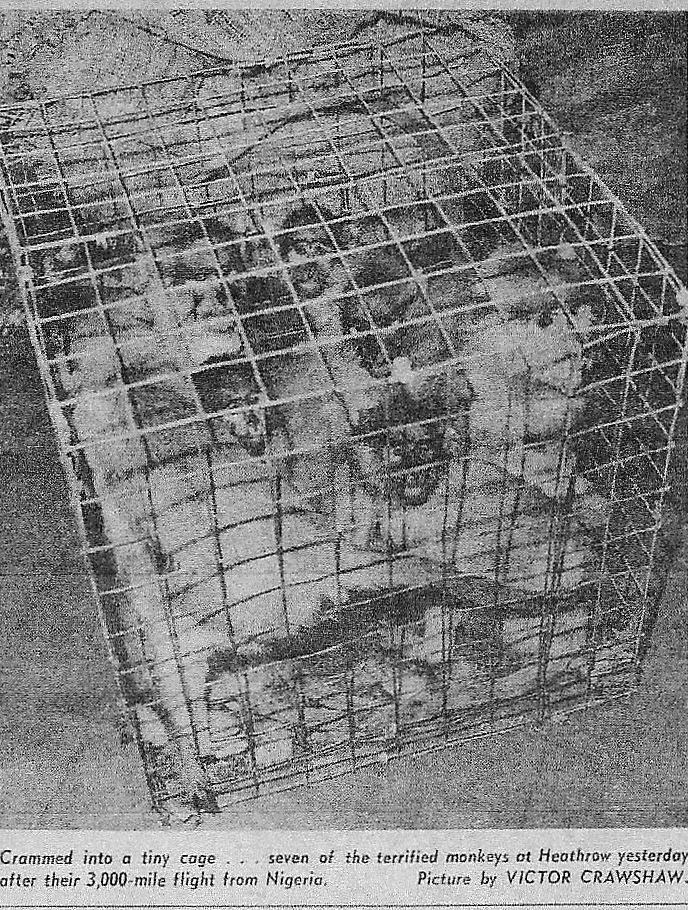
RSPCA open a hostel to deal with the carnage.
The situation was so awful that the airlines were forced to seek advice and guidance and turned to the RSPCA. In 1948 the RSPCA had protracted negotiations and discussions with the airline companies and the Ministry of Civil Aviation and the Society agreed to act as a clearing house for scientific and practical knowledge on the transport of animals by air.
They also agreed in principle to lease land on the airport to construct a reception centre to care for animals delayed on their journeys or transiting where they could be given food, lodging, exercise, first-aid or veterinary attention. This 24 hour facility opened in 1953 as the RSPCA Airport Hostel for animals.
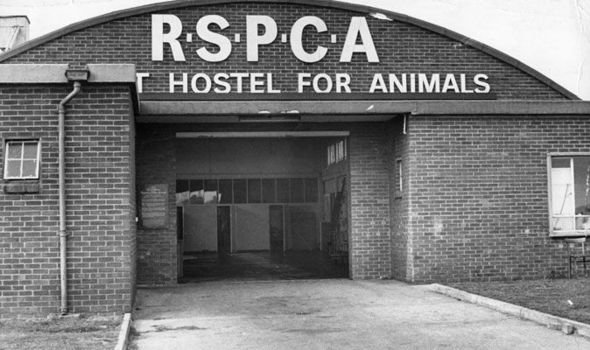
Horror sea voyages.
But it was not just by air that there were problems. The fifties were a cross over time when animal dealers were moving from sea transport to aircraft, but monkey shipments were still suffering on board ships. In September 1959, 300 monkeys left Singapore on what was called a “horror voyage” to London onboard a Ben Line Steamer, and 120 were found dead when they arrived at the docks.
Large adults, youngsters and pregnant females had all been crammed together in crates and fought over food killing each other. They were taken to the RSPCA airport hostel for care, the only place that existed to deal with such an emergency. One the RSPCA staff stated to the media that “it was a terrible sight. I shall forget it for as long as I live”. The monkeys then had to face another voyage to Rotterdam and their destination.
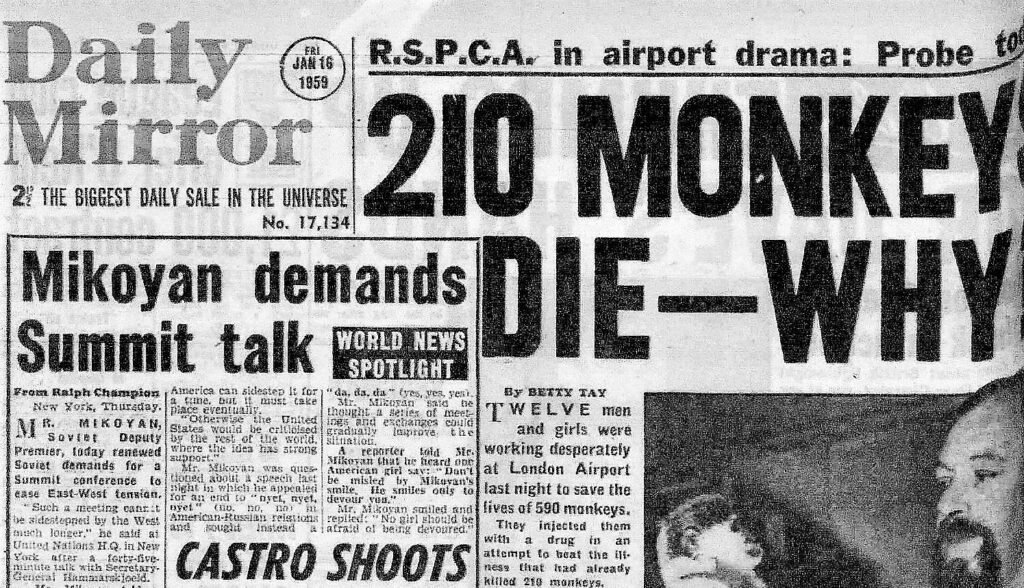
Over the next few decades, the staff were to witness regular weekly horror shows and helped and comforted these frightened, stressed and pitiful monkeys. Pulling out the dead and dying and new-born babies or aborted fetuses would often reduce them to tears.
Investigations always promised and guidelines introduced but little changed.
But the horror continued into the 1960’s even though the Government introduced the British Standards for the Carriage of Live Animals by Air in 1961. And in 1970 the International Air Transport Association published mandatory minimum guidelines for transporting animals to those airlines that were members. But few were members and those that were, often ignored them. The guidelines were also badly flawed because of lack of understanding.
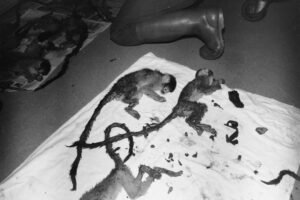
It was never going to change because shippers were only interested in keeping shipping costs to the minimum and the carriers did not want to lose money by refusing trade. The airports realised that if they intervened the shippers would avoid Heathrow and route them elsewhere.
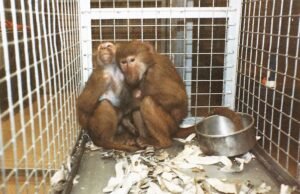
I unfortunately experienced these tragedies in the 70’s and 80’s as an animal inspector and manager of the then Animal Quarantine Station that took over from the RSPCA. What upset me most was the look of despair, hopelessness and fear on their little faces and their dejected demeanour.
Even more sadly they would often put their hands through the wire for reassurance which was heart-breaking. The shame of it allis that the U.K Ministry of Agriculture could have stopped the trade through the airport but decided to ignore it.
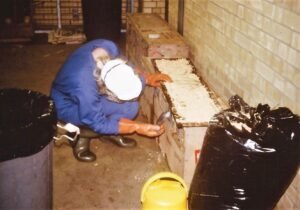
Monkeys are still shipped round the world for research.
Deaths continued well into the 1990’s and even today more than 80 years after it all started, primates are still being airlifted in some parts of the world. The numbers may be much smaller and the conditions more controlled but there are still instances where they suffer and die. Welfare organisations still plead with airlines to stop carrying them. They have had some success with many having placed a ban on their carriage.
Associated Book:
A book chronicling the cruelty and suffering caused to animals passing through Heathrow Airport in 1970/80s with graphic images and Foreword by Sir Peter Scott.

